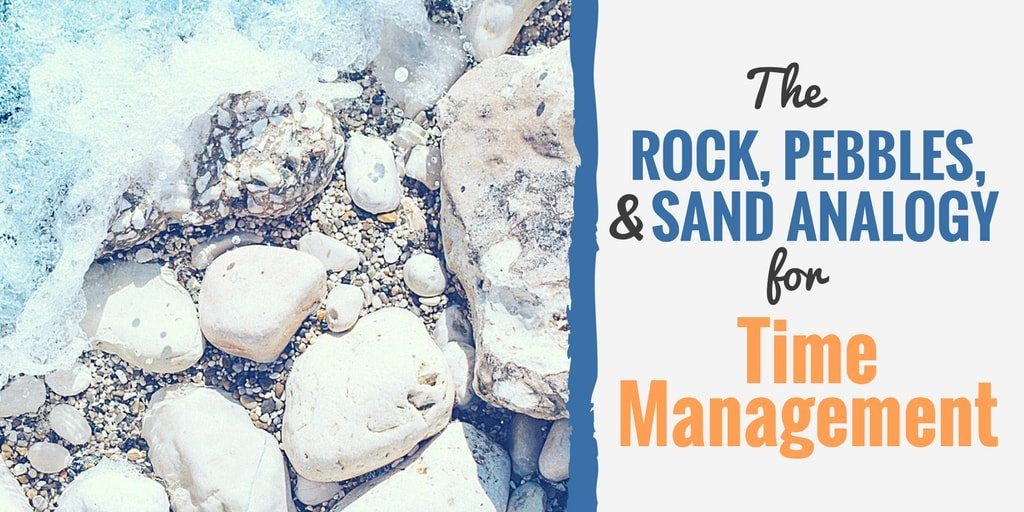Last week I wrote how important it is to have a plan for each day and to execute on that plan. Today I am writing about how to prioritize all of the tasks that you have or that you give yourself on any given day.

Rock, Pebbles and Sand
I am inspired by two articles: This one by Jari Roomer posted on Medium.com, and this one about the Rock, Pebbles and Sand theory that is currently popular in the blogosphere. Both have a similar message: that you need to prioritize based on what acts or tasks will be the most consequential toward achieving the most important goals that you have. These are the “rocks”. Move the rocks first, and make it a priority to move the rocks, because they are the largest and require the most thought and energy, but have the most impact. Once you have moved the rocks to where you need them to be, then you can turn your attention to the pebbles (somewhat easier to move but still lumpy), and then to the sand (fine particles that fill in the lumpy spots) if and when you have time. In his article, Roomer discusses the 80/20 rule, where 20% of your daily tasks result in 80% of the impact you desire. Like rocks.
Do the Biggest Task First
Another variation on this theme is to complete the biggest task first, when you are freshest of mind and have the most energy. I am a morning person so I like to work first on those tasks that require the most tasks or energy. Once I get those done, I feel like the remainder of the day will be easy relative to what I have already accomplished, and that if I don’t get much more done for that day, I can consider my day to have been at least a small success. For me, talking to people on the phone or in person doesn’t require as much energy as does just sitting there and thinking about writing or solving problems, so I tend to schedule my conversations (if I have a choice) for later in the day.
Allot a Finite Time
Roomer says one should go so far as to allot a specific amount of time for each task during the day. He refers to Parkinson’s Law, which is that work tends to expand to fit the time allotted to it. Setting a goal of 2 hours, for instance, to accomplish a task also is a way of taking control of the situation and not to let the event take control of you. When you have an in-person meeting or a call, you typically set a deadline for when it should end. Why not do the same thing for a task that you are working on? If you have an urgency to finish something, self-imposed or not because you have other things to do, then you may devote more mental or physical energy to that task and you may do a better job with it. Doing so may also allow you to pay attention to some of those pebbles and sand that otherwise you may not have time for.
Create Value
Roomer’s advice is, “The only thing that matters is the value you create.” He means Value in the broadest sense, not just building something that someone else will buy for a higher price. Think about everything you do in terms of creating value for yourself or others, and you will see what you do every day in a different light.
IMO
The “Rock, Pebbles and Sand” concept provides you with a good visual way to look at your tasks and to decide which are the most important. Roomer’s article is more specific as to how to prioritize. Both get to the same point, which is that some things are more important or more impactful than others and that you should prioritize those things so that you will feel a sense of accomplishment.
